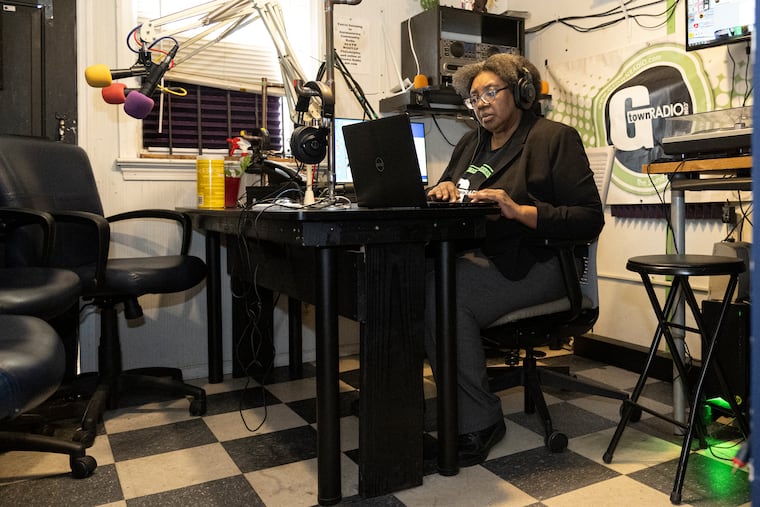If politics is making you depressed, you aren’t alone
G-Town radio host and Germantown resident Janice Tosto talked with Christopher Ojeda from the University of California, Merced, about the connections between depression and civic engagement.

This election cycle is extremely important, so I made sure to get my mail-in ballot sent out early. I just received a confirmation email that I have officially voted.
But as happy as I am about voting, I have also been feeling distressed, sad, and fatigued. Quite frankly, though I am consistently civically engaged — a super voter, if you will — I find politics depressing, especially now. I am not alone.
I was recently speaking about this with Christopher Ojeda, assistant professor of political science at the University of California, Merced, in preparation for an episode of my radio program Grief Journeys. Ojeda studies how citizens think about and engage with politics. He is especially interested in how poverty and mental health shape citizen engagement, and his current book project — The Sad Citizen — explores how contemporary democratic politics makes citizens feel depressed.
Ojeda opened our conversation by talking about his childhood in a poor family with a single mother who was not college-educated and who worked two jobs. In graduate school, he wrote about the “income participation gap,” in which people who are richer tend to be more involved in politics than poorer people.
“I thought, maybe one explanation for this income participation gap could be depression,” he told me. “We know that poverty is a huge risk factor for depression. And I thought, you know, depression, it really sidelines people. It makes it hard to fulfill everyday activities, and that potentially could include political engagement.”
In 2016, Ojeda had a close friend who became very depressed following the election of Donald Trump as president. That’s when Ojeda started wondering whether politics was causing depression. “This whole time, I had been thinking about how depression affects politics. It affects our engagement. It affects our thinking,” Ojeda told me, “but here I’m seeing my friend depressed by politics.”
He found inspiration for this new focus in the work of New York Times columnist and author Michelle Goldberg, and includes this quote from her essay, “The Mental Health Toll of Trump-Era Politics,” in his book: “I’ve long thought that widespread psychological distress wildly intensified by the pandemic — contributes to the derangement of American politics. But maybe the causality works the other way too, and the ugliness of American politics is taking a toll on the psyche of the citizenry.” In other words, we’re depressed and worn down because today politics is less about serving the public good and more about our elected officials serving their own interests, to our detriment. It can be wearisome to remind them that they work for us.
When I said at the beginning of this piece that politics have me depressed, I didn’t mean it in the clinical mental health use of the term, but in the more vernacular sense that Ojeda describes as “having a weight on your shoulders, a sunk feeling.”
I will probably feel exhausted and depressed until the election takes place, and possibly sometime after.
For many, that feeling may be exacerbated by family conflict resulting from political differences. It may also surge after the elections. Quick suggestions from Ojeda about how to deal with the latter when your candidate of choice has lost the election include taking time away from news and social media, looking for social support, and affirming the value of democracy by getting involved in a cause that fuels your passion.
I will probably feel exhausted and depressed until the election takes place, and possibly sometime after. But I plan to stay civically engaged because this is not the time to be sitting on the sidelines.
You can hear my discussion with Ojeda in full on G-Town Radio on Friday at 7 a.m. The show will also be archived at Mixcloud.com/griefjourneyshost.
Janice Tosto is the host of “Grief Journeys,” heard on G-Town Radio (www.gtownradio.com) in Philadelphia. She resides in Germantown and can be reached at janicetostoradio@gmail.com. Her discussion with Christopher Ojeda will air on G-Town Radio on Friday, Oct. 25, at 7 a.m. The program will also be archived at Mixcloud.com/griefjourneyshost.